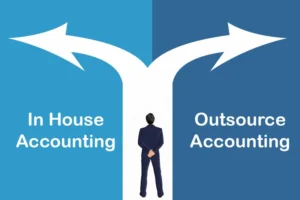Canadian entrepreneurs dream big, just like the 449,000+ new businesses that launched in the US in April 2025, many as Limited Liability Companies (LLCs). You may also wonder what LLCs mean for your business plans.
We at SAL Accounting explain LLCs in simple terms, show why they’re popular, and explore options to help you succeed. Read on to learn more.
Quick Takeaways
- An LLC blends corporate protection with partnership simplicity, safeguarding personal assets.
- Pass-through taxation eases LLC taxes, but Canadians face CRA’s corporate rules.
- Flexible ownership and less paperwork suit freelancers and startups.
- Forming a U.S. LLC takes six steps, with state-varying costs.
- Canadian LLC owners need expert help to dodge double taxation.
LLC Meaning: Understanding the Limited Liability Company
A Limited Liability Company (LLC) is a US business setup that blends a corporation’s safety with a partnership’s ease (IRS LLC’s Guide). Owners, called members, keep personal stuff like homes safe from business debts or lawsuits. Profits go to members’ tax returns and avoid corporate taxes with pass-through taxation. Get a free consultation for US LLC incorporation accounting from Canada.
LLC Structure Types: Solo, Team, and Management Setups
A Limited Liability Company (LLC) works for all sorts of businesses, whether you’re solo or with a team. You pick how to own and run it, which makes it super flexible. Here’s how you can set it up:
1.Single-Member LLC
This type has one owner who runs everything (more details). You keep all the profits and make all the calls. It’s great for freelancers or small business owners who want total control.
Real-World Example: Anheuser-Busch uses a single-member LLC for some operations, keeping full control under one entity.
2.Multi-Member LLC
This type has two or more owners who share the business. You split profits and tasks. It’s perfect for partners or groups starting a company together. You can explore ownership options and check if a Canadian corporation can own a US LLC here.
Real-World Example: Nike Retail Services LLC, a multi-member LLC, shares ownership to handle retail operations.
3.Member-Managed LLC
In this setup, owners manage daily work. You stay in charge of operations and decisions. It’s ideal for small teams who like hands-on work. See LLC filing as a corporation for more.
Real-World Example: Amazon Services LLC, likely Member-Managed, has key members managing daily tasks.
4.Manager-Managed LLC
Here, owners hire a pro to run things. You focus on big goals like growth while the manager handles everyday stuff. It’s awesome for busier or bigger companies.
Real-World Example: Sony Music Holdings Inc. uses Manager-Managed LLCs for subsidiaries, with managers running operations.
Compare LLC structure types to find the best fit for your business with this quick overview:
| Structure Type | Ownership | Management | Best For |
| Single-Member LLC | One owner | Owner manages | Freelancers, solo entrepreneurs |
| Multi-Member LLC | 2+ owners | Owners or managers | Partnerships, group ventures |
| Member-Managed LLC | Any number of owners | Owners manage daily | Small, hands-on teams |
| Manager-Managed LLC | Any number of owners | Hired manager runs ops | Larger businesses, passive owners |
LLC Formation: Steps to Launch Your US Business LLC
Starting a Limited Liability Company (LLC) in the US is pretty easy. Setting up an LLC follows a few simple steps. Costs change depending on the state (e.g., LLC fee in California). This section walks you through each step so you know exactly what to do.
1.Select a Unique LLC Name
Choose a name nobody else has. Check the state’s business list to make sure it’s free. Add “LLC” to it, like “Maple Ventures LLC.” A consultant, for example, checks Delaware’s list to grab a unique name.
2.Submit Articles of Organization
Send a form to the state. It shows your LLC’s name, purpose, and who’s in it. For example, see New York’s process for filing LLC articles in NY. This makes your business legit. Delaware charges about $90 for this. California asks for $70 plus a hefty $800 yearly tax.
Pro Tip: File online for faster processing. Many states like Delaware offer expedited options for a small fee, often under $50.
3.Appoint a Registered Agent
Find someone to handle legal papers for your LLC. You can do it yourself or hire a service. This person keeps you on track with state rules.
4.Create an Operating Agreement
Write a plan for how your LLC works. It says who decides stuff and how you split profits. You don’t always need it, but it’s super helpful, especially for LLCs with multiple owners.
Pro Tip: Include a buyout clause in your operating agreement to handle member exits smoothly, preventing disputes later.
5.Obtain an Employer Identification Number (EIN)
Get an EIN from the IRS. It’s like a tax ID for your LLC. It’s free and quick to get online. You need it for taxes and hiring folks. Learn more about EIN for Canadian companies and how to apply it.
6.Open a Business Bank Account
Keep your LLC cash separate from your personal money. Open a US bank account using your EIN and articles of organization. You can simplify this step with the guide on how to open a US bank account as a Canadian.
Pro Tip: Compare banks for low fees and digital access, as some offer free business accounts for LLCs with minimal transactions.

How to Set Up an LLC in Canada
Canada doesn’t allow LLCs as a business structure. You can form a US LLC and use it in Canada as a foreign entity. Or pick one of the business structures in Canada. Both options work for starting a business. LLC formation is straightforward with these steps.
Make a US LLC and Use It in Canada
Follow these steps to create a US LLC and operate in Canada, outlined fully in how to open an LLC in the US from Canada:
- Choose a state like Delaware ($90 fee). Pick a unique name with “LLC” (like “Sunrise Ventures LLC”).
- File articles of organization. Name a registered agent for legal papers.
- Write an operating agreement. It’s super helpful for multiple owners. Get an IRS EIN.
- Register as an Extra-Provincial Corporation (EPC) in Canada (~$360). Send US LLC papers and a Canadian address.
- Open a US bank account with your EIN.
Set Up a Canadian Corporation
For a local option, consider a Canadian corporation. Follow these steps, detailed on how to set up a corporation in Canada:
- Choose a unique name using the NUANS database.
- File articles of incorporation ($200 federally).
- Name directors. Sign up with the CRA for taxes.
- Open a Canadian bank account.
How LLCs Are Taxed: All Options Including S Corporation + Forms
Taxes for a limited liability company give you choices, a big win for US businesses. We will break down LLC tax options in a simple way.
1.Pass-Through Taxation
Most LLCs choose this for easy taxes. Profits go to your personal tax return. Solo LLCs file Schedule C, like $50,000 as income. Team LLCs file Form 1065, splitting profits via Schedule K-1. Unlike C corps, you skip corporate taxes.
Benefits: You avoid corporate taxes. It saves cash for freelancers and small teams. Filing is straightforward.
2.S Corporation Status
Some LLCs pick this to save money. File Form 2553 to act like an S corp. You pay a fair salary for Social Security and Medicare taxes. Dividends skip those taxes.
Benefits: High earners keep more profits. It suits steady businesses. Plan taxes easily with stable cash.
3.C Corporation Status
Few LLCs pick this, but filing IRS Form 8832 lets you tax it like a C corp. Pay 21% corporate tax in 2025. Dividends get taxed too. It’s double taxation, but it works for big plans.
Benefits: Reinvesting profits fuels growth. It fits large LLCs with complex needs. Check foreign tax rules if abroad.
4.Self-Employment Taxes
Pass-through LLC members pay self-employment taxes. In 2025, it’s 15.3% on profits up to $168,600 for Social Security (SSA) (12.4%) and Medicare (2.9%). An $80,000 profit means $12,240 in taxes. S corporation members pay on salaries only. C corp members skip it.
Benefits: Funds US programs like Social Security and Medicare. Explore LLC tax options and forms with this clear comparison chart.
| Tax Option | IRS Form | Tax Treatment | Best For |
| Pass-Through | Schedule C (solo), Form 1065 (multi) | Profits on personal return | Freelancers, small teams |
| S Corporation | Form 2553 | Salary taxed, dividends untaxed | High earners, stable businesses |
| C Corporation | Form 8832 | 21% corp tax + dividend tax (2025) | Large LLCs, growth-focused |
| Self-Employment Taxes | N/A | 15.3% on profits up to $168,600 | Pass-through LLCs |
US LLC Taxes for Canadians: Key Issues and Solutions
Canadians with a US Limited Liability Company (LLC) deal with tricky tax stuff. This section explains the main tax issues clearly for Canadian business folks.
- CRA’s Take: The CRA treats US LLCs like corporations, not like the US pass-through setup. You might pay taxes in both countries on your profits. Check 2025 corporate tax deadlines for Canadian businesses to stay compliant.
- Canadian Tax Forms: You file a T2 form for LLC income. If your foreign assets top $50,000, you also need Form T1135. A bookkeeper keeps your records straight for both the US and Canada.
- Dodging Double Taxes: A tax pro uses the U.S.-Canada tax deal or tax credits to lower your bill. Owning the LLC through a Canadian company can save cash, too.
- Staying on Track: File IRS and CRA forms on time, like Schedule C or Form 1065. Simplify LLC taxes with our bookkeeping services at SAL Accounting.
LLC vs. Other Business Structures, S Corp, C Corp, and Ltd
Picking a business type means checking out your choices. An LLC differs from S corps, C corps, and Ltd companies. Each has cool perks and some quirks (visit CRA business setup). Here’s a fast guide to help you pick.
1.LLC vs. S Corp
LLCs let you choose any owners. You run things your way. S corps save cash on self-employment taxes with a salary setup. They cap at 100 owners. Only U.S. folks can own shares.
2.LLC vs. C Corp
LLCs skip double taxes. Profits go straight to your return. C corps pay 21% corporate tax. You also pay dividends. They work for big companies (SBA guide). They pull in investors with no owner limit.
3.LLC vs. Ltd
Ltd companies shield your stuff like LLCs. They pay corporate taxes. They need more paperwork, like meetings. LLCs keep it chill with less hassle.
LLC Pros and Cons: A Quick Breakdown
LLCs are a hit with entrepreneurs for their perks, but they’ve got some quirks. Here’s a quick look at the ups and downs for Canadians:
Pros:
- Safe Assets: LLCs protect your house and stuff if the business flops. Sole proprietorships don’t.
- Easy Taxes: Profits pass through to your tax return. A $60,000 profit is your income, with no double tax like C corps.
- Less Paperwork: No need for board meetings. Simpler than corporations, but sole proprietorships are even easier.
- Any Owners: LLCs allow unlimited members, people, or companies. Sole proprietorships are one-person shows.
Cons:
- Tax Hassles for Canadians: The CRA sees LLCs as corporations, which can mean double taxes.
- Self-Employment Taxes: You pay 15.3% on profits up to $168,600 in 2025, unlike S or C corps (more on IRS self-employment taxes).
- State Fees: Places like California charge big annual fees, like $800, more than basic setups.
Compare US and Canadian options with the guide on Incorporating in Canada vs US, opportunities, and obstacles.

Is an LLC Right for You?
A limited liability company offers flexibility for your business. It’s a solid choice for many entrepreneurs. Here’s who an LLC works best for:
- Freelancers: Protect savings from client disputes, like a writer dodging a bad deal.
- Startups: Share profits with partners easily, which is great for a small app team.
- Small Businesses: Keep your home safe if the shop struggles, perfect for a bakery owner.
Schedule a free consultation for LLC formation in the USA for non-residents in Mississauga now.
Final Thoughts
A US LLC offers great benefits like asset protection and simpler taxes, a top choice for business owners. Still, tax rules, especially for non-U.S. residents, can get tricky. This guide covers the essentials to help you launch with confidence. SAL Accounting provides expert support to ease the process.
Begin your LLC journey with a free consultation. Contact us today.
Frequently Asked Questions (FAQs)
An LLC, or Limited Liability Company, is a U.S. business structure that protects personal assets like homes from business debts and lawsuits while offering flexible taxes and management.
Yes, a corporation can own an LLC as a member, allowing flexible ownership structures.
Yes, an LLC can hire employees using an Employer Identification Number (EIN) for payroll and taxes.
An accountant isn’t mandatory, but they help with complex taxes, bookkeeping, and compliance, especially for Canadians.
LLC profits pass through to your personal tax return, reported as income. Canadians may face double taxation due to CRA rules.
LLCs suit freelancers, startups, and small businesses like bakeries for asset protection and tax simplicity.
LLCs have simpler pass-through taxes, but S Corps can reduce self-employment taxes for high earners. A tax pro can advise.






